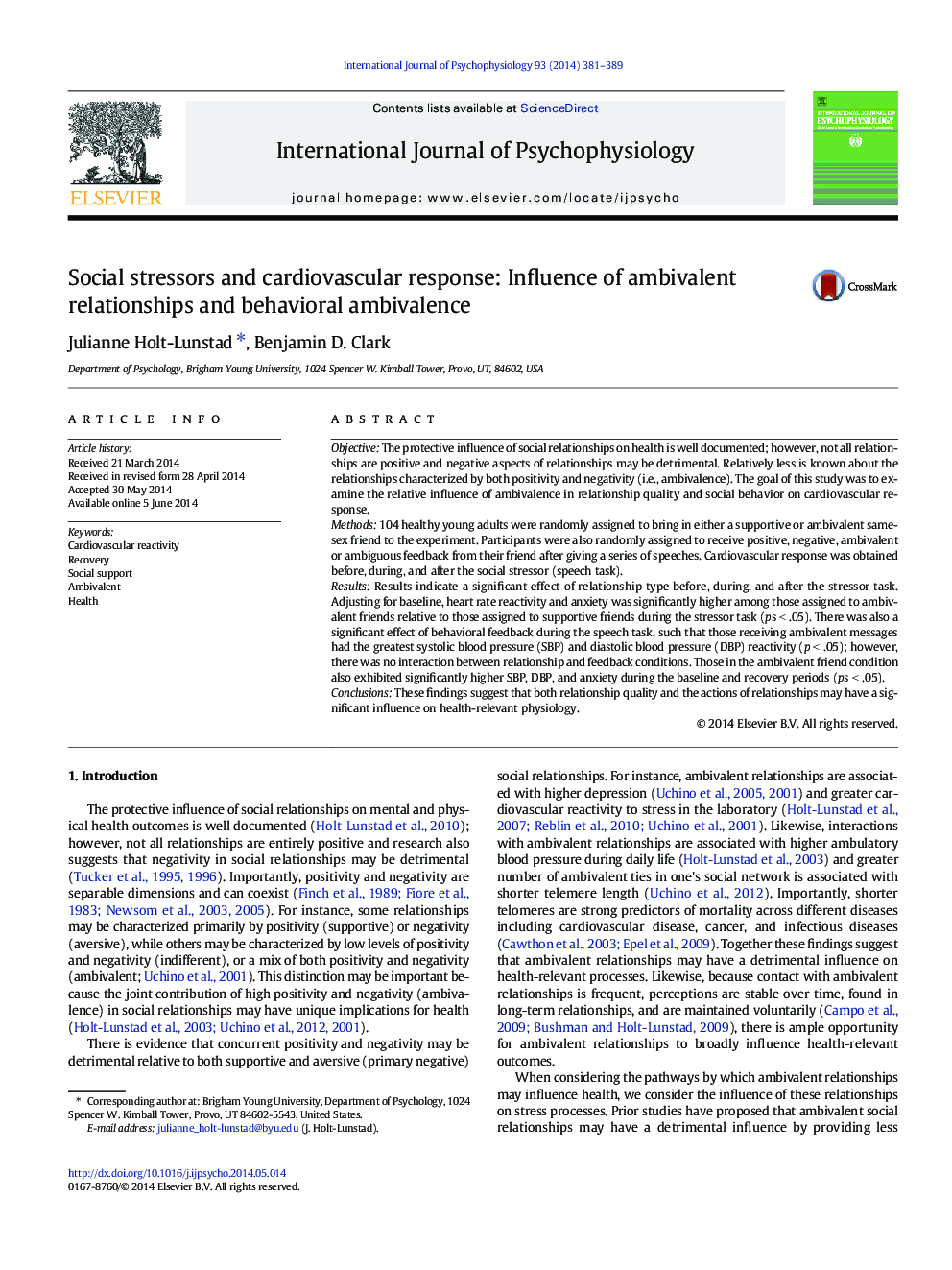| کد مقاله | کد نشریه | سال انتشار | مقاله انگلیسی | نسخه تمام متن |
|---|---|---|---|---|
| 930258 | 1474415 | 2014 | 9 صفحه PDF | دانلود رایگان |
• We examine the relative influence of relational and behavioral ambivalence.
• Heart rate reactivity was higher among those assigned to ambivalent friends.
• Blood pressure reactivity was higher among those who received ambivalent feedback.
• No interaction between friendship quality and valence of feedback on reactivity.
• Blood pressure and anxiety higher during recovery for those with ambivalent friends.
ObjectiveThe protective influence of social relationships on health is well documented; however, not all relationships are positive and negative aspects of relationships may be detrimental. Relatively less is known about the relationships characterized by both positivity and negativity (i.e., ambivalence). The goal of this study was to examine the relative influence of ambivalence in relationship quality and social behavior on cardiovascular response.Methods104 healthy young adults were randomly assigned to bring in either a supportive or ambivalent same-sex friend to the experiment. Participants were also randomly assigned to receive positive, negative, ambivalent or ambiguous feedback from their friend after giving a series of speeches. Cardiovascular response was obtained before, during, and after the social stressor (speech task).ResultsResults indicate a significant effect of relationship type before, during, and after the stressor task. Adjusting for baseline, heart rate reactivity and anxiety was significantly higher among those assigned to ambivalent friends relative to those assigned to supportive friends during the stressor task (ps < .05). There was also a significant effect of behavioral feedback during the speech task, such that those receiving ambivalent messages had the greatest systolic blood pressure (SBP) and diastolic blood pressure (DBP) reactivity (p < .05); however, there was no interaction between relationship and feedback conditions. Those in the ambivalent friend condition also exhibited significantly higher SBP, DBP, and anxiety during the baseline and recovery periods (ps < .05).ConclusionsThese findings suggest that both relationship quality and the actions of relationships may have a significant influence on health-relevant physiology.
Journal: International Journal of Psychophysiology - Volume 93, Issue 3, September 2014, Pages 381–389
